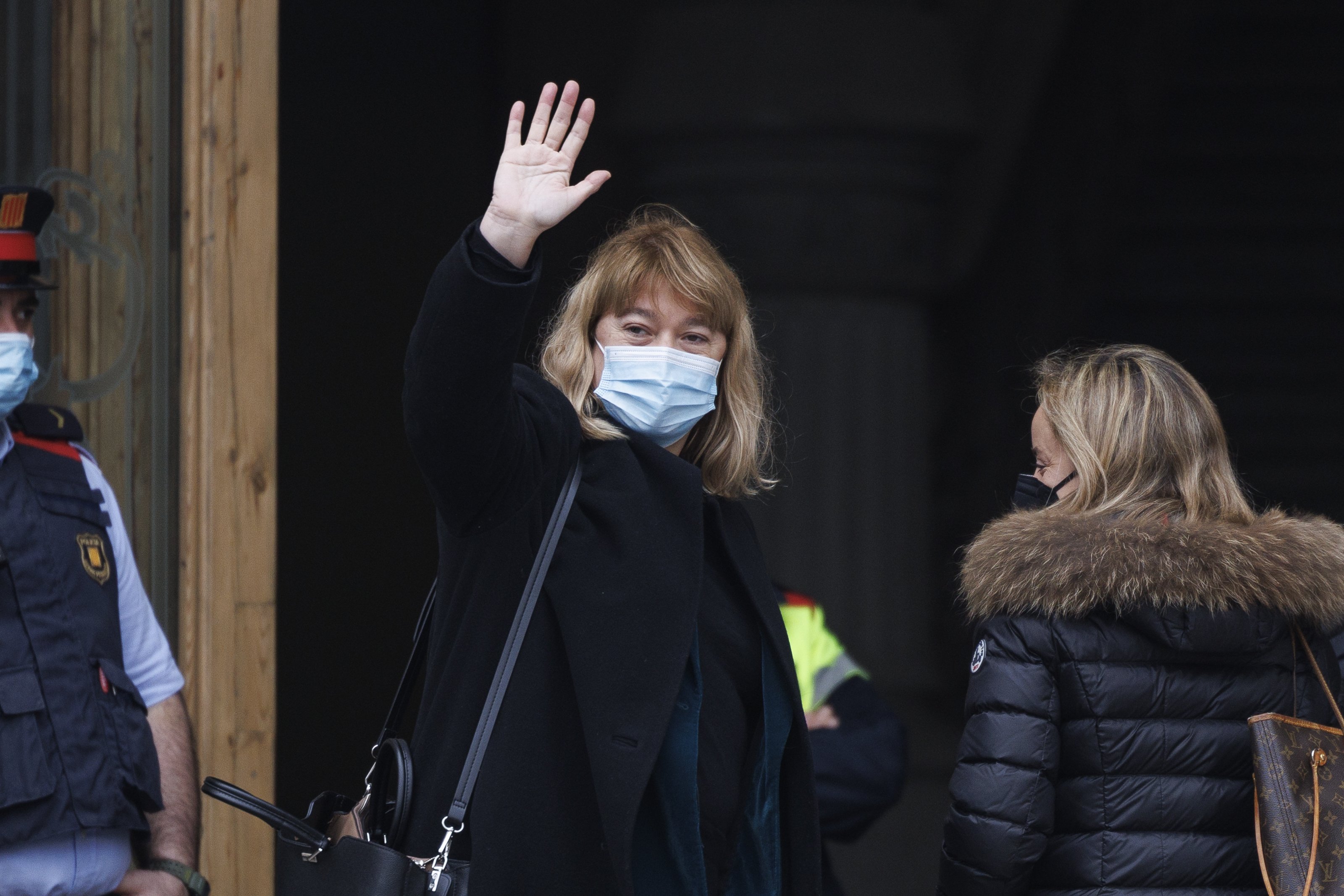A quarter of an hour. That's how long the Catalan minister of culture, Natàlia Garriga, under investigation for her role in organizing the 1st October 2017 referendum in Catalonia, spent before the judge of the High Court of Catalonia (TSJC) today. The minister stated that she did not receive any instruction from the Spanish Constitutional Court to take no action in the Catalan self-determination referendum, according to judicial sources. At that time, Garriga was a director of services in a Catalan government ministry, that of the vice-presidency and economy, under the current ERC deputy Josep Maria Jové. Garriga only answered the questions of her own lawyer, Laura Parés, who will now ask the Constitutional Court to advise the Catalan court whether or not it formally warned Garriga. A second charge against Garriga is connected to the works carried out in an industrial building attached to Catalonia's Centre for Telecommunications and Information Technology (CTTI), and she assured that this refurbishing was not used only for the referendum but also for the elections later that year, and that now the 061 emergency service uses the space and it has, in fact, also been used for the pandemic. Certainly, the judge Maria Eugènia Alegret ruled out these works, valued at about two million euros, as a charge against Jové and his colleague Lluís Salvadó given that the facility had other uses later.
Initially, an ordinary investigative court in Barcelona, court number 17, focussed on Garriga for offences of misuse of public funds and disobedience for the organization of the 2017 referendum. Garriga was one of about 20 government officials and businessmen arrested in September 2017 in the build-up to the referendum, in an attempt to stop it. When she was elected as a Catalan minister last year in Pere Aragonès's government, Garriga became protected from prosecution in lower courts and thus her case was elevated to the TSJC. And although she had already been summoned to testify in court, TSJC judge Maria Eugènia Alegret called her again today over the same allegations. The minister asked to be investigated in the proceedings already opened against Jové and also Salvadó, now an MP but then secretary of the Catalan Treasury, in the case already open against them in the TSJC, a request accepted by the court.
Crimes
Last December, the prosecutor presented a letter to the TSJC validating that Garriga should be investigated in the TSJC, but ruling out the crime of misuse of funds, which can be punished by imprisonment, and asking for her to be investigated and tried only for disobedience, for which she could be removed from public office. The Spanish state's solicitors and far-right party Vox are also involved in the case, the latter as a private prosecution, and, according to the facts delimited by the instructor, they will be able to accuse her of misuse of funds.
In February 2020, the TSJC prosecuted the now-MPs Jové and Salvadó for the crimes of disobedience, abuse of authority, misuse of funds and disclosure of secrets. In addition, the judge, Maria Eugènia Alegret, imposed a civil liability bond of 2,889,000 euros in the case of Jové and 1,635,000 euros in Salvadó.
Three actions
Prosecutor Pedro Ariche asserts that the now-minister Garriga is guilty of three criminal actions: having awarded several minor contracts to carry out works in industrial facilities attached to the Centre for Telecommunications and Information Technologies (CTTI); acting as liaison between Jové and Mercedes Martínez so that Pau Furriol would allow use of a warehouse in Bigues i Riells, where the police seized 9.8 million ballot papers and 5,903 envelopes; and on September 6th, 2017, holding talks with Josué Sallent to remove the password from the referendum.cat page so that anyone could access it, and finally of being present at an event to promote unity and commitment to the Referendum, with high government officials, on April 21st, 2017.
The investigative part of the legal process for those who allegedly played roles in organizing the 1st October 2017 referendum is almost complete and it only remains to see if the parties request further evidence, for the prosecution to submit its indictments, charges and sentences it is seeking against the three ERC figures. The minister Garriga was supported by members of the independence movement outside the gates of Barcelona's Palau de Justícia today.

